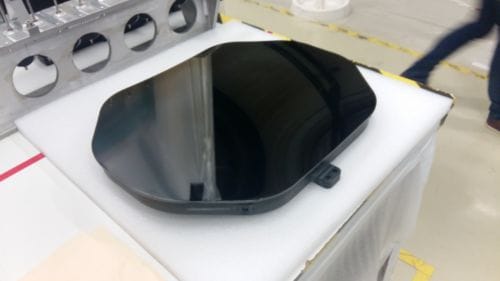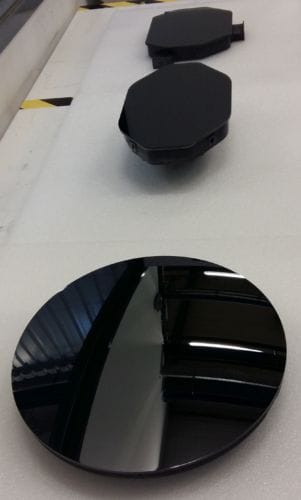Polishing of the five internal SiC mirrors for the Euclid space telescope
AMOS was contracted by Airbus for the polishing of five Silicon Carbide Mirrors for EUCLID.
EUCLID is a space telescope with a optical diameter of 1.2m designed to study the Dark Universe. It will map the 3D distribution of two billion galaxies distributed over most of the sky and the dark matter associated with them. EUCLID was launched summer 2023 from the Guiana Space Center in Kourou.
Recently, the Gaia mission had already revolutionized the way we understand the evolution of our galaxy by mapping with extreme precision the position and speed of more than a billion stars in the Milky Way. The EUCLID mission will do the same for the entire visible universe. It will map the large-scale structure of the Universe over 10 billion light years, revealing the history of its expansion and the formation of large structures during the last three quarters of its history.
As for Gaia, AMOS was chosen by Airbus and ESA to manufacture all EUCLID flight mirrors downstream of the primary mirror. These mirrors are made of silicon carbide, one of the most stable materials there is, so that they retain their shape despite the extreme conditions encountered in space. They were polished with a surface roughness less than one nanometer (one nanometer is equivalent to 1 billionth of a meter). Such precision means that a human hair lying on the surface would be 50,000 times thicker than the residual roughness on its surface.
Euclid is an ESA mission to map the geometry of the dark Universe. The mission will investigate the distance-redshift relationship and the evolution of cosmic structures by measuring shapes and redshifts of galaxies and clusters of galaxies out to redshifts ~2, or equivalently to a look-back time of 10 billion years.
The Euclid space probe is based on a 1m infrared telescope. This cutting-edge instrument needed to be tested in representative thermal and vacuum conditions. For this purpose, AMOS was contracted the building of a 1.2m collimator designed to project to the telescope a signal that would look as if coming from the infinity of the universe.

EUCLID M2 mirror

EUCLID M3 mirror
EUCLID SiC mirrors
 info@amos.be
info@amos.be
 +32 4 361 40 40
+32 4 361 40 40


 see all
Projects
see all
Projects